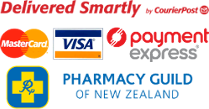What are antacids used for?
Antacids are used for treating stomach acidity. They neutralise gastric hydrochloric acid or prevents secretion of acid. Antacids can provide almost instant relief for many stomach troubles, including:
- heartburn
- indigestion
- symptoms of acid reflux
What are some of the side effects of antacids?
Excessive consumption of antacid can also lead to an overdose of calcium carbonate and magnesium, as these are the two main ingredients in many antacids. They can also cause an increased risk of developing sensitivity to certain foods.
What is heartburn?
This condition, in spite of its name, does not have anything to do with a heart condition. Although some of the symptoms may be similar to that of a heart attack or heart disease, it is actually an irritation of the esophagus caused by overproduction of stomach acid. The experience is a burning discomfort in the upper abdomen or below the breastbone.
There is a muscular valve called the lower esophageal sphincter or LES that keeps the stomach acid in the stomach, which is controlled by the help of gravity. The LES is located where the esophagus meets the stomach, exactly below the rib cage and slightly left of center. Its normal function is to open up to allow the food to get into the stomach in order to allow belching, then it closes again. However, heartburn occurs when LES opens too often or does not close tight enough. The stomach acid can reflux or seep into the esophagus which causes the burning sensation.
Occasional heartburn is not dangerous but chronic cases or Gastroesophageal Reflux Disease (GERD) can sometimes lead to more serious problems.
What are the causes of heartburn?
Here are some of the risk factors and foods that can cause heartburn:
- Too much food in the stomach or overeating
- Too much pressure put on the stomach as a result of obesity, pregnancy or constipation.
- Certain foods: tomatoes, citrus fruits, garlic, onions, chocolate, coffee, alcohol, caffeinated products and peppermint
- High fat and oily foods, whether animal or vegetable fats
- Certain medications
- Stress and lack of sleep
- Smoking
What are the symptoms?
You can usually tell that you are suffering from heartburn when you feel:
A burning sensation in your chest behind your breastbone that usually occurs after eating and usually lasts a few minutes to several hours.
Chest pain that you feel after bending over, lying down or eating
Burning sensation in the throat - hot, sour, acidic or salty tasting fluid at the back of the throat
Difficulty swallowing
You feel that there is food stuck in the middle of your chest or throat
You may experience chronic cough, sore throat or chronic hoarseness
When should I seek immediate medical attention?
If the chest pain is accompanied by a cold sweat or palpitations and does not go away after taking antacids, then you should seek immediate medical attention, as it may be related to heart attack.
What are the treatment options?
More often than not, a simple change in diet and lifestyle can help eliminate heartburn episodes. Doctors will most likely suggest a change in these two before prescribing medication.
Some lifestyle changes that can help alleviate heartburn:
Limit intake of food and beverages that are known triggers to stimulate overproduction of acid.
Don't lie down for about 2 hours after eating.
Elevate the head a few inches while sleeping.
Maintain a reasonable weight.
Wear loose fitting clothes
Quit smoking
Stop drinking alcohol
Do relaxation and stress relieving techniques such as meditation.
Try to avoid citrus fruits, fatty and oily foods, spicy foods, carbonated beverages, coffee, chocolate, caffeinated beverages
You can try including these foods to help: Bananas, chamomile tea, apple cider vinegar, turmeric, aloe vera juice, ginger
If a change in lifestyle does not bring relief, your doctor may recommend over the counter or prescription treatment options. NB: If you are pregnant, definitely talk to your health practitioner before taking over-the counter antacids. Examples of medication include:
- H2 Blockers
- Antacids (over-the-counter)
- Proton Pump Inhibitors (prescription medicine)
Page updated 06/04/18 12:47:36 p.m.















